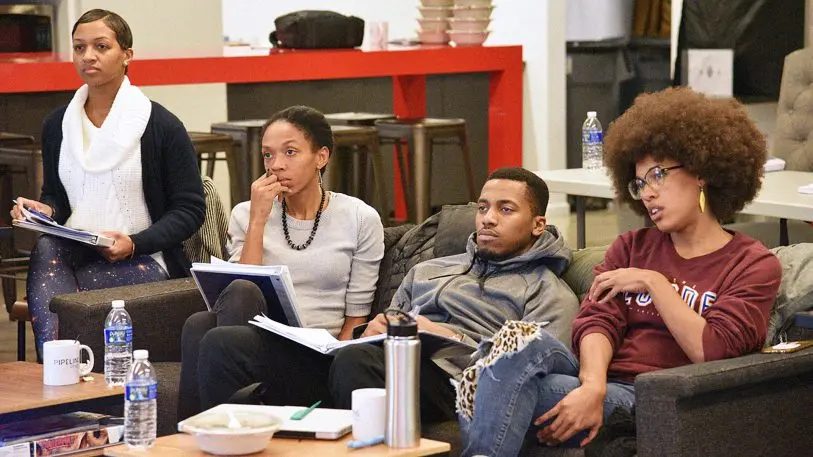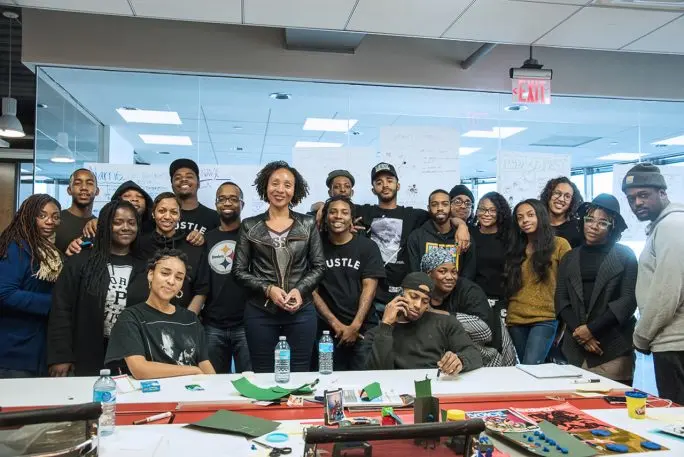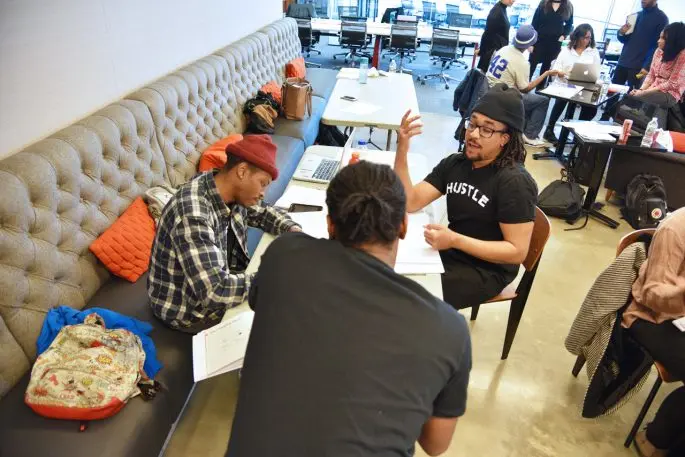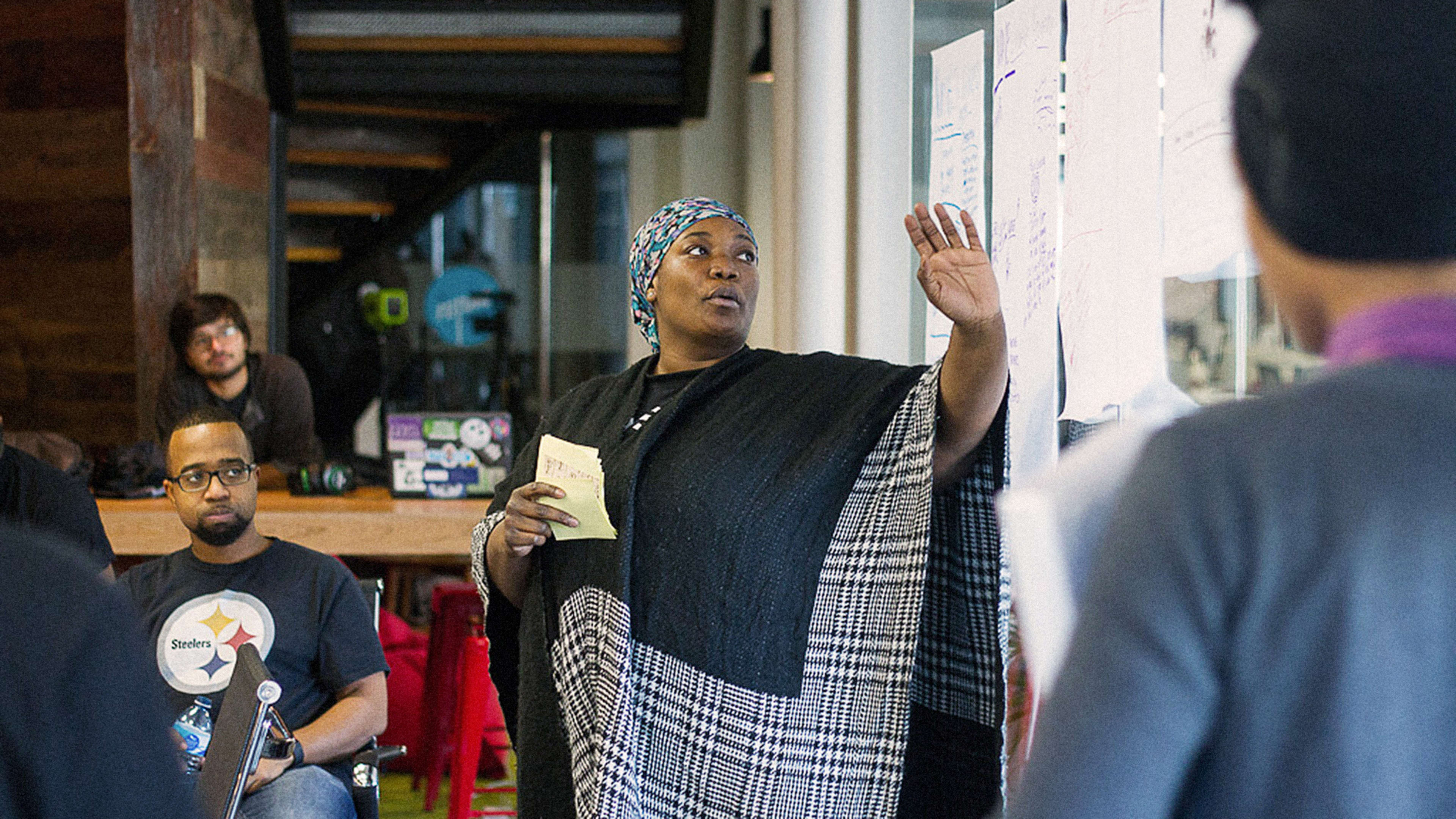At the Institute of Hip Hop Entrepreneurship in Philadelphia, traditional business school professors have been replaced with the hip-hop artist Bahamadia, the DJ Rich Medina, Ruffhouse Records cofounder Joe “The Butcher” Nicolo, and more than 20 industry insiders. But students aren’t trying to make it in the music world. Instead, the program’s goal is to share lessons from hip-hop that students can translate into their own successful startups–and to make a typically dry curriculum both more interesting and culturally relevant.
“What’s unique about hip-hop is the number of entrepreneurs that music may have been the first door that they went through, but now they’re involved in multiple industries,” says Tayyib Smith, one of the co-founders of Little Giant Creative, the agency that created the new program, which won a Knight Cities Challenge grant to launch in 2016. Diddy earns millions from his clothing line, Dr. Dre’s Beats headphones sold to Apple for $3 billion, and Jay Z’s empire includes clothing, sports management, champagne, and the streaming service Tidal. The industry has also pioneered new business practices. “Best practices–particularly in marketing, street teaming, the contemporary concept of guerilla marketing–most of those things came in their embryonic stage from hip-hop.”

Each session pulls in leaders from hip-hop to illustrate textbook concepts. For a session on value proposition, for example, Yusef Muhammed, a music festival guru, talked about how he assessed the need for his services and innovated to become more valuable to companies like Live Nation.
“We use a lot of the language, narrative, and contextualization to basically take pretty standard practices in building businesses and entrepreneurship to bring the concepts to life, and to underscore the ways that you would basically take that concept and apply it to your own business,” says Little Giant cofounder Meegan Denenberg.

In each weekend session, the students have the opportunity to get to know multiple people who have succeeded in hip-hop. “The sheer amount of people that it exposes you to, people who are really willing to say ‘Hey, here’s my email address, here’s my cell phone,’ and they’ll really be an ear to listen and help guide you–it’s kind of like a built-in mentorship program,” says Amira Smith, one of the students, who is developing a business that can help TV shows and films accurately represent diverse characters.
The hip-hop industry is important as a model, she says, in part because it showed that it was possible to succeed in the business world without losing authenticity. “Hip-hop brought in so many people who were disenfranchised because of the ways that wealth is distributed and the roadblocks, especially for people of color, in this country,” she says. “Hip-hop broke down that barrier, and did it in such a way where it wasn’t saying, ‘I’m going to put on a mask to conform or to assimilate to what people think a businessperson should look like.’ You had people like Russell Simmons coming through and unabashedly be themselves. He said, ‘Okay, I’m here, I have a multimillion dollar company, and I can speak Ebonics if I feel like it, I can act however I feel, because you want what I am offering. That’s all that matters. So hip-hop is a huge equalizer.”

Though the Knight Foundation grant only covered a year of the program, Smith and Denenberg are seeking funding to keep it going, and potentially later expand to other cities. In part, it’s a response to the fact that traditional education isn’t working well for many students; in some Philadelphia schools, fewer than 50% of students graduate from high school. “You see the numbers of students that are actually graduating, yet everyone still has this idea that the pathway to success goes from graduating to going to college to getting a job,” Denenberg says. “There’s something missing there.”
“To us, using contemporary language and contextualization of something that’s really a common connector, and something that really compels people to want to learn, was almost a no-brainer,” she says.
Recognize your brand’s excellence by applying to this year’s Brands That Matter Awards before the early-rate deadline, May 3.
